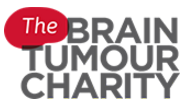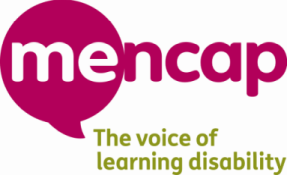Related Research Articles
Palliative care is an interdisciplinary medical caregiving approach aimed at optimizing quality of life and mitigating suffering among people with serious, complex, and often terminal illnesses. Within the published literature, many definitions of palliative care exist. The World Health Organization (WHO) describes palliative care as "an approach that improves the quality of life of patients and their families facing the problems associated with life-threatening illness, through the prevention and relief of suffering by means of early identification and impeccable assessment and treatment of pain and other problems, physical, psychosocial, and spiritual." In the past, palliative care was a disease specific approach, but today the WHO takes a broader patient-centered approach that suggests that the principles of palliative care should be applied as early as possible to any chronic and ultimately fatal illness. This shift was important because if a disease-oriented approach is followed, the needs and preferences of the patient are not fully met and aspects of care, such as pain, quality of life, and social support, as well as spiritual and emotional needs, fail to be addressed. Rather, a patient-centered model prioritizes relief of suffering and tailors care to increase the quality of life for terminally ill patients.
The Royal National Institute of Blind People (RNIB) is a UK charity offering information, support and advice to almost two million people in the UK with sight loss.
Diabetes UK is a British-based patient, healthcare professional and research charity that has been described as "one of the foremost diabetes charities in the UK". The charity campaigns for improvements in the care and treatment of people with diabetes.

Marie Curie is a registered charitable organisation in the United Kingdom which provides care and support to people living with a terminal illness and those close to them, and campaigns for better support for dying people. It was established in 1948, the same year as the National Health Service (NHS).

The Brain Tumour Charity is a UK-based, Charity Commission registered, charity dedicated to funding research, raising awareness of brain tumours, reducing diagnosis times and providing support and information for people with brain tumours, their families and friends.

The Royal Mencap Society is a charity based in the United Kingdom that works with people with learning disabilities. Its Charity Number is 222377.

Chernobyl Children International (CCI) is a non-profit, international development, medical, and humanitarian organisation that works with children, families and communities that continue to be affected by the economic outcome of the 1986 Chernobyl accident. The organisation's founder and chief executive is Adi Roche. Before 2010, it was known as Chernobyl Children's Project International (CCPI).
Residential care refers to long-term care given to adults or children who stay in a residential setting rather than in their own home or family home.

Martin House is a charity that provides hospice care for children and young people across West, North and East Yorkshire. It provides family-led care to children and young people with life-limiting and life-threatening illnesses, either at the hospice or in families' own homes.
A group home, congregate living facility,care home, adult family home etc, is a structured and supervised residence model of medical care for those with complex health needs. Traditionally, the model has been used for children or young people who cannot live with their families or afford their own homes, people with chronic disabilities who may be adults or seniors, or people with dementia and related aged illnesses. Typically, there are no more than six residents, and there is at least one trained caregiver there 24 hours a day. In some early "model programs", a house manager, night manager, weekend activity coordinator, and four part-time skill teachers were reported. Originally, the term group home referred to homes of 8 to 16 individuals, which was a state-mandated size during deinstitutionalization. Residential nursing facilities, also included in this article, may be as large in 2015 as 100 individuals, which is no longer the case in fields such as intellectual and developmental disabilities. Depending on the severity of the condition requiring one to need to live in a group home, some clients are able to attend day programs and most clients are able to live normal lifestyles.

Norwood, known legally as Norwood-Ravenswood, is a UK charity established in 1785 in the East End of London. Its name comes from its long running home for Jewish children, Norwood Hall, in the south London suburb of West Norwood which opened in 1863 and closed in 1961.

Shooting Star Children's Hospices is an English children's hospice charity. The charity cares for babies, children and young people with life-limiting conditions, and their families, across Surrey and West London. They provide specialist clinical and holistic care to families from diagnosis to end of life and throughout bereavement.
Hospice care is a type of health care that focuses on the palliation of a terminally ill patient's pain and symptoms and attending to their emotional and spiritual needs at the end of life. Hospice care prioritizes comfort and quality of life by reducing pain and suffering. Hospice care provides an alternative to therapies focused on life-prolonging measures that may be arduous, likely to cause more symptoms, or are not aligned with a person's goals.
Rainbows the East Midlands Children’s Hospice is a registered charity in England, Number 1014051. The charity provides palliative care and support for children, young people, and their families, when faced with life-limiting conditions.
In England, social care is defined as the provision of social work, personal care, protection or social support services to children or adults in need or at risk, or adults with needs arising from illness, disability, old age or poverty. The main legal definitions flow from the National Health Service and Community Care Act 1990, with other provisions covering disability and responsibilities to informal carers. That provision may have one or more of the following aims: to protect people who use care services from abuse or neglect, to prevent deterioration of or promote physical or mental health, to promote independence and social inclusion, to improve opportunities and life chances, to strengthen families and to protect human rights in relation to people's social needs.

Children’s Hospices Across Scotland (CHAS) is a registered charity that provides the country's only hospice services for children and young people with life-shortening conditions, and services across children’s homes and hospitals. The first hospice was built thanks to the late editor-in chief of the Daily Record and Sunday Mail, Endell Laird, who launched a reader appeal which raised £4million. CHAS offers children’s hospice services, free of charge, to every child, young person and their families who needs and wants them. CHAS was formed in February 1992 by a group of professionals and parents of children with life-shortening conditions who had travelled to England for hospice care. In 2018/19, CHAS supported 465 children with a life-shortening condition, and their siblings, parents and wider families. The care provided is multi-disciplinary, including from doctors, nurses, social workers, pharmacists, play specialists and others. CHAS also employs medical and nursing staff who work in hospitals alongside NHS doctors and nurses.
Shared Lives, which is also known as Adult Placement in some areas, is a UK form of support and accommodation for adults with need wherein approved individuals or families open their lives to aid older or disabled persons.
For many elderly carers of a relative who has a learning or other disability, future planning is an issue. The population of older parents who have children with a learning disability is growing and many of their children are likely to outlive them. In many cases the caring role can span up to seven decades, ending only with their death. Governments and other service providers cannot ignore the pressing needs of this population and their parent and sibling carers. In most countries, family carers provide inexpensive care for a person with a learning disability and other disabilities. This trend is set to continue in England. Demographic changes and the health needs of these two growing populations must be considered against government policy constraints and limited in-home and external care options in order to avoid a crisis. The consequences of not supporting these family carers will lead to crisis management, increase in distress and care giving burdens, and increased spending on unsuitable crisis placements. Housing and financial guidance are issues for caregivers.

Together for Short Lives is the UK registered charity for children's palliative care. Together for Short Lives’ vision is for children and young people in the UK with life-limiting and life-threatening conditions and their families to have as fulfilling lives as possible, and the best care at the end of life.

Gina Long is a philanthropist, entrepreneur, journalist, radio presenter and global charity campaigner. She was awarded an MBE for services to the charity sector in December 2015. She was made a Honorary Fellow of the University of Suffolk in October 2018.
References
- ↑ "Charities protest at red border for overdue accounts". Third Sector. 8 October 2008.